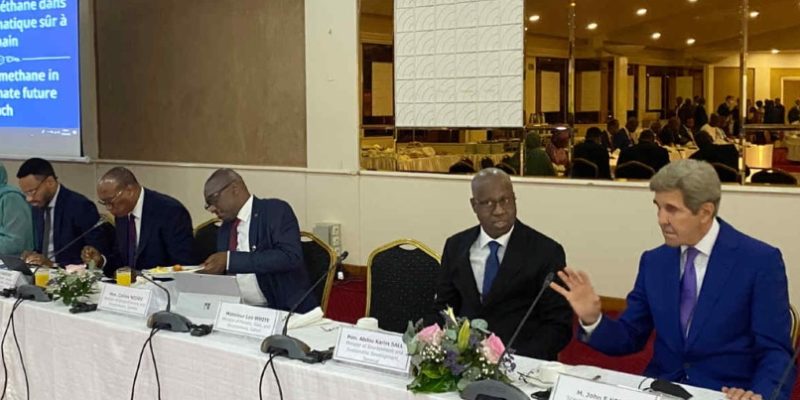The United States of America is announcing $5 million in support for the fight against methane emissions in Africa. The funding is being provided to the Climate Change Fund for Africa (CCFA), administered by the African Development Bank (AfDB).
The United States of America is pledging $5 million to combat methane emissions in Africa. The announcement was made by the US president’s special climate envoy, John Kerry, at a breakfast meeting on the sidelines of the 18th African Ministerial Conference on the Environment held in Dakar, Senegal, from 13 to 16 September 2022.
The US funding is being provided to the Climate Change Fund for Africa (CCFA), a multi-donor trust fund established by the African Development Bank (AfDB) in April 2014 with the primary mission of helping African countries build resilience to the negative impacts of climate change and transition to sustainable low-carbon (CO2) growth. The $5 million in support provided by the United States of America is dedicated to reducing methane (CH4) emissions.
Methane emissions in Africa
This hydrocarbon containing hydrogen and carbon is a greenhouse gas (GHG). According to the United Nations Environment Programme (UNEP), its warming effect is 80 times more powerful than that of CO2. As a result, scientists estimate that it has caused 30% of global warming since the pre-industrial era and is proliferating faster than at any time since record keeping began in the 1980s.
Read also- AFRICA: a new centre to help countries reduce their methane emissions
In fact, according to data from the U.S. National Oceanic and Atmospheric Administration (NOAA), even though CO2 emissions slowed during the Covid-19 pandemic containment, atmospheric methane increased. One of the main sources of methane emissions is agriculture, through ruminant livestock. These emissions come from manure and gastrointestinal discharges, particularly during rumination. According to UNEP, this accounts for 32% of human methane emissions.
New funding for emissions reduction in Africa
Also, “rice paddies, which require fields to be flooded and prevent oxygen from entering the soil, create ideal conditions for methane-emitting bacteria. This practice accounts for 8% of emissions from human activity,” says UNEP. A study published by the European Geosciences Union (EGU) in 2019 looked at methane emissions between 2010 and 2016. Over this period, sub-Saharan Africa was responsible for a third of methane emissions. According to the researchers, most of this methane is emitted in East Africa.
At the Dakar conference, the US pledge was followed by other announcements, including from the Climate and Clean Air Coalition and the Global Methane Commitment Alliance, which plan to allocate “new resources to address methane emissions in African countries”. For its part, Egypt, which is preparing to host the 27th UN climate conference (COP27), is calling for the integration of the Africa Waste 50 initiative into the Global Methane Alliance. The Africa Waste 50 initiative to be launched at COP27 aims to increase the recycling rate of African waste to 50% by 2050, by pooling local, regional and global efforts and experiences.
Jean Marie Takouleu







